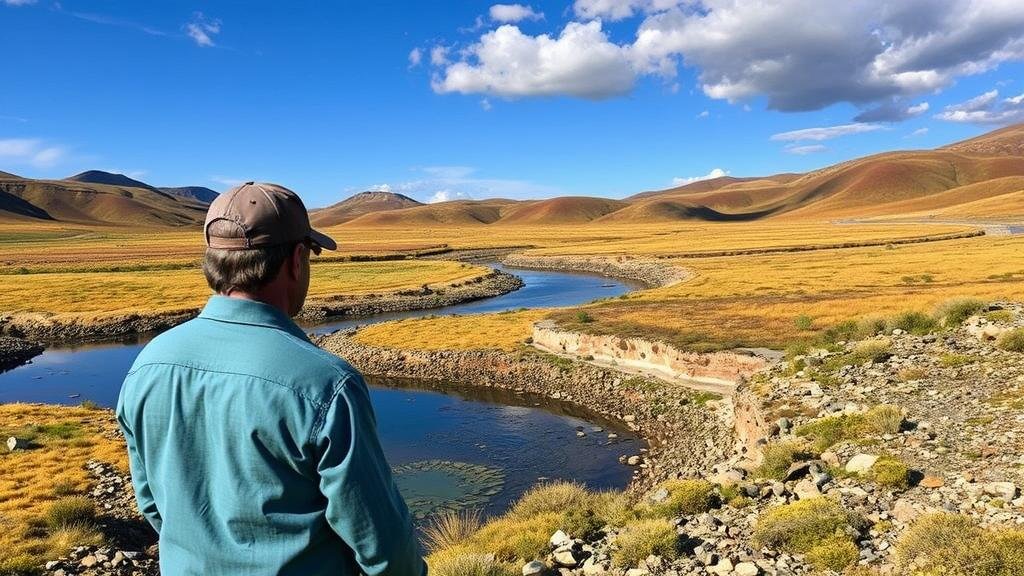Navigating the Legal Landscape of Gold Prospecting and Mining
Navigating the Legal Landscape of Gold Prospecting and Mining
Gold prospecting and mining have seen a resurgence in popularity over the past few years, prompting both hobbyists and seasoned professionals to explore this lucrative endeavor. But, the legal landscape surrounding these activities can be complex and varies significantly between regions. This article aims to elucidate the essential legal considerations for anyone interested in gold prospecting and mining, ensuring that enthusiasts operate within the bounds of the law.
Understanding Mining Law
Mining law encompasses a wide array of statutes, regulations, and case law. In the United States, both federal and state laws play crucial roles in governing mining activities. The principal legislation at the federal level is the General Mining Act of 1872, which provides the framework for individuals and companies to acquire rights to explore and extract mineral resources from public lands.
- This act allows miners to stake claims on lands where the government has not previously reserved mineral rights.
- State laws also dictate various aspects of mining, including land use and environmental regulations.
For example, in California, the Surface Mining and Reclamation Act of 1975 mandates that operators conduct mining operations in a manner that minimizes environmental impact while planning for the lands reclamation after mining activities cease.
Types of Mining Claims
In the legal context, there are primarily two types of mining claims: placer claims and lode claims. Understanding these distinctions is crucial for potential miners.
- Placer Claims: These are established on deposits of valuable minerals found in loose material, such as gravel or sand. Gold prospectors often seek placer claims in rivers or streams to extract gold particles from sediment.
- Lode Claims: These claims are related to minerals found in solid rock formations. They are typically more complex and may require more substantial investment for extraction.
Permits and Environmental Considerations
Before embarking on a gold prospecting or mining venture, obtaining the necessary permits is essential. Depending on the location and scale of operations, miners may need various federal, state, and local permits. National Environmental Policy Act (NEPA) requires federal agencies to assess the environmental impact of proposed mining projects.
Also, most states have their own regulatory bodies that enforce additional environmental regulations. For example, in Alaska, miners must comply with the state’s Department of Natural Resources requirements, which includes filing a mine plan and undergoing a public review process.
In practice, failing to obtain proper permits can lead to significant financial penalties, operational disruptions, and even the revocation of mining privileges. A notable case is that of the Liberty Gold Corp., which faced legal challenges due to non-compliance with state regulations in their mining operations.
Water Rights and Access Issues
Water is a critical resource in gold mining, especially for placer operations that rely on water to separate gold from sediment. Understanding local water rights is imperative for miners. In many states, water rights are separate from land ownership, governed under a prior appropriation doctrine, meaning users must prove beneficial use and the water must be allocated through a permit mechanism.
- Miners must research the water rights associated with their claims, as unauthorized water use can lead to legal disputes.
- Adhering to both state and federal water regulations is essential to maintaining compliance.
Miners Rights and Obligations
Once a mining claim is established, miners have specific rights and obligations. They are entitled to extract minerals, but they must also adhere to regulations and respect neighboring claims and landowners. For example, the Mining Law of 1872 explicitly states that miners must only extract minerals from their claims and avoid any actions that would interfere with neighboring claims.
Also, miners are responsible for maintaining their claims, which involves annual assessment work and, in many cases, reporting activities to the Bureau of Land Management (BLM). Failure to do so can lead to claim forfeiture.
Conclusion and Actionable Takeaways
Navigating the legal landscape of gold prospecting and mining requires a comprehensive understanding of various laws and regulations at both the federal and state levels. Here are some actionable takeaways for prospective miners:
- Conduct thorough research on federal and state mining laws applicable to your location.
- Secure all necessary permits before commencing any mining activities.
- Understand water rights and ensure compliance with related laws.
- Regularly maintain your mining claims and keep accurate records of your activity.
By adhering to these guidelines, miners can responsibly engage in gold prospecting and mining while mitigating potential legal pitfalls.


